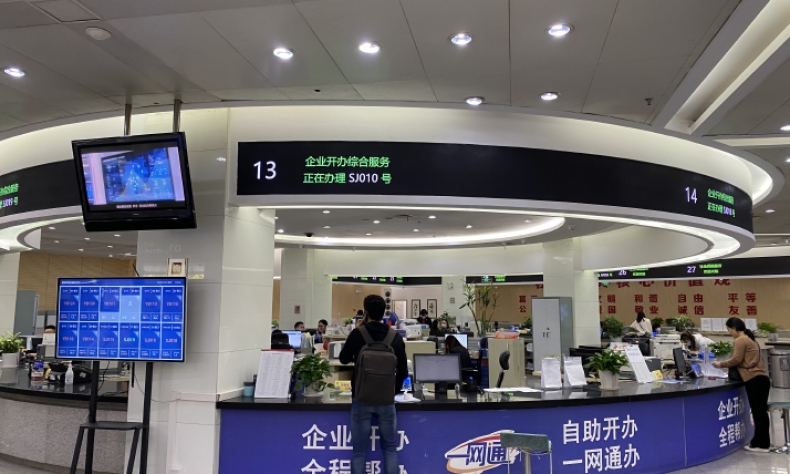China Needs to Further Develop Effective Government and Efficient Market

The government needs to develop closer ties with market entities while maintaining integrity and impartiality.
During the Fifth Plenary Session of the 19th Central Committee of the Communist Party of China held on October 26-29, China proposed to further integrate an effective government and an efficient market. The 14th Five-Year Plan (2021-25) period marks the first such period for China to embark on a new journey of building a modern socialist country and marching toward the second centenary goal. During the five years, it is of great significance to bring the roles of the government and market into full play.
An efficient market plays a decisive role in resource allocation and can steadily improve the efficiency of the allocation. As an invisible hand, the market enjoys remarkable advantages in efficient allocation of resources, which is why China has shifted the centrally planned economic system to a socialist market one to promote market-oriented economic growth.
Earlier this year, the Central Government proposed to promote the new development pattern of dual circulation in which domestic and foreign markets reinforce each other, with the domestic market as the mainstay. To strengthen domestic demand, the government needs to make the market more efficient through overcoming difficulties and addressing problems to allow the market to play a decisive role so that various production factors can flow freely and be allocated efficiently.
The government needs to implement more targeted and effective regulation. Since the market and the government could both malfunction, the government needs to regulate the market and speed up adjustment in its function to avoid over intervention or inaction. It is supposed to launch policies in a more targeted manner, easing control when needed while keeping regulation in place.
The plenum stressed the need to accelerate independent research and development of key cutting-edge technologies, in which enterprises play a major role and government institutions can also help boost innovation. In terms of emerging technologies and business modes such as the shared economy, the government needs to launch inclusive and prudent regulations.
The progress of China’s reform and opening up starting in 1978 can be attributed to common development of the market and government administration, reinforced by each other. As government reforms promoted market growth, the boom of the market in turn prompted the government to make further reforms. With more reforms launched, the market has continued to flourish. In the initial period of reform and opening up, the easing of government control in some fields boosted market expansion, which drove the government to further expand price reforms until the prices of most goods and services became fully market-oriented.
The mutual reinforcement has driven China’s rapid economic growth with the market and the government both in the driver’s seat.
The government needs to develop closer ties with market entities while maintaining integrity and impartiality. It needs to provide state-owned and private enterprises with a level playing field to avoid a situation where the bad money drives out the good.
The government is supposed to provide support for enterprises in an all-out manner. As the novel coronavirus disease hit some regions in China earlier this year, governments at all levels introduced a slew of supporting policies for domestic companies facing difficulties, helping many industries weather the hard time and resume work and production.
During the process of balancing the roles of the government and the market, initial mistakes or missteps are likely to happen. The onus is on both parties to identify the problems and move forward together.
The government needs to learn about the demands and opinions of entrepreneurs and introduce policies and measures that can address real problems. It could involve business owners in the formulation of policies and expand the channels for enterprises to give feedback on effects of policy implementation to make the policies more targeted, efficient and feasible.
In addition, the government needs to remain transparent and uphold equality and the rule of law to facilitate the smooth operation of enterprises.
The author is a professor at the School of Public Administration and Policy, Renmin University of China.
 Facebook
Facebook
 Twitter
Twitter
 Linkedin
Linkedin
 Google +
Google +










